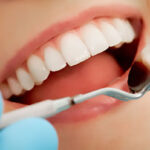TMD, or Temporomandibular Joint Disorder, is one of the most common dental health problems experienced among people in the Los Gatos community. The primary cause of TMD lies in the damage or dysfunction of the jaw muscles, joints, and nerves that support chewing functions.
You can seek TMJ treatment in Los Gatos to alleviate the pain and discomfort caused by TMD. However, it is important to understand the main causes of TMJ disorder in order to properly treat and manage your condition.
Let us now have a look into the main cause of TMJ disorders in Los Gatos.
- Jaw injuries
Jaw injuries like broken jawbone, dislocation of the bones and jaw joint, or muscle sprain can cause TMD. This type of trauma to the muscles, joints, and nerves supporting chewing can lead to pain, tenderness, and other symptoms associated with TMJ disorder. So, it is best to seek medical advice as soon as possible if you experience any jaw trauma.
- Teeth grinding or clenching
Bruxism or teeth grinding and clenching is a common cause of TMD. It can lead to facial pain, headaches, worn enamel on the tooth surface, and jaw pain due to the excessive force put on the temporomandibular joints. The most effective way to treat this condition is through stress management techniques, such as relaxation therapy, regular exercise, and massage.
- Arthritis in your jaw joint
Arthritis affects the jaw joints and muscles, causing pain in the jaw, face, and neck. It is important to seek medical advice if you suspect that your TMJ disorder is caused by an underlying condition like arthritis.
- Malocclusion
Malocclusion or misaligned teeth can cause excessive stress on the jaw muscles and joints. If your bite is not aligned properly, it can lead to TMD symptoms, such as pain in the jaw joint, earaches, and headaches. It is important to visit your dentist if you think your TMJ disorder is caused by malocclusion.
- Stress
Stress can cause tightening of the jaw muscles and increased grinding of the teeth. This type of stress-related behavior can lead to TMD symptoms, such as jaw pain, headaches, and earaches. Stress management techniques like yoga, meditation, and relaxation exercises can help reduce the risk of developing TMD symptoms associated with stress.








